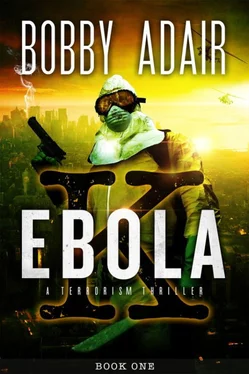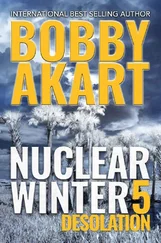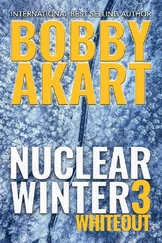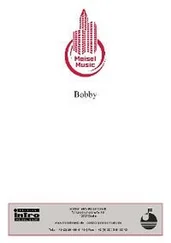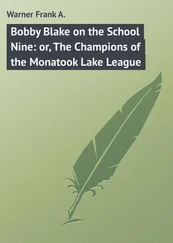Najid laughed out loud. “Your faith in men runs deeper than mine, doctor. In all of man’s history, except for the age of electronics, gold has never had any intrinsic value. At best it was made into trinkets that didn’t rust. But men have always traded weapons, water, food, even their lives to possess it. It will be so in the future. The value men place on gold has never been rational. So it will continue.”
“Wiser than proceeding down this road with only a hope for a cure would be to have a backup plan.” Dr. Kassis laid a gloved palm across Rashid’s forehead. “I will speak candidly.”
“Of course.”
Dr. Kassis turned to face Najid. “In case I fall ill and am unable to offer it at a later date, I wish to tell you now?”
Najid scrutinized the doctor. “Do you think you might fall ill?”
“I don’t know. The risk is great. Our clean room is not so clean. I don’t know whether every man follows the procedures as required. It only takes one lazy man failing to remove a bit of contaminated protective gear for all of us to become infected.”
Najid’s anger rose. “Have you seen someone do this?”
“No,” Dr. Kassis shook his head slowly, showing his fatigue. “When men get tired, they make mistakes. That is all I am saying.”
“If one has made a mistake and we become infected, or if we simply aren’t protected well enough and we fall ill, what is this alternative?”
“I know you educated yourself a great deal about this disease before we came here. Did you read about the outbreak in Kikwit in 1995?”
“I am not familiar with that outbreak,” replied Najid.
“More than three hundred fell ill. Eighty percent died.”
“Not as bad as some outbreaks.”
“No.” Dr. Kassis stood up and stretched. “Let’s walk a bit.”
Najid stood up and the two men waded through the prone townsfolk, with their distant, empty faces and near-lifeless bodies. They followed the center aisle to the front doors and went out to stand on the patio.
The doctor leaned on the porch railing. “Near the end of the outbreak, one of the nurses fell ill, a Zairian woman. This disturbed the Zairian doctors greatly. They had all been taking precautions, including this nurse. They wore goggles, masks, gloves, and suits. They disinfected themselves with bleach, sprayed it on the suits, and waded through pools of bleach on the way out of the sick wards. All procedures were followed, but still, she fell ill.”
“That is a frightening prospect,” said Najid.
“For one thing, it tells us how dangerous this disease is. It takes a dozen or fewer virions—”
“Virion? I do not know this word.”
“It is an individual virus—a strand of RNA or DNA wrapped in a shell of proteins. An individual package—the infectious particle designed for transmission of any virus is called a virion.”
“Interesting that you don’t talk as though it is alive.”
Dr. Kassis nodded, “Yes, it is good that you caught that. Viruses exist somewhere between living and nonliving things, as we traditionally think of them. The point I’m making, though, is that given the unimaginably tiny amount of material it takes to make up a dozen virions, it takes only the imperceptibly smallest of mistakes to become infected.”
“That is not encouraging, Dr. Kassis.”
The doctor shook his head. “That is exactly what the Zairian doctors thought. And after seeing one of their own—the nurse—contract the virus, they knew that any one of them might be next. Who can say if it was that, or pure altruism motivating their subsequent choices? Regardless, they took a risk on an experimental treatment.”
Najid gave Dr. Kassis his full attention. “What do you know of this experimental treatment?”
“Some of the Ebola patients survived. Indeed, some were on the road to full recovery. They clearly had the antibodies in their blood to fight off the virus. That is how immunity works in humans.”
Seemed pretty basic to Najid. “I understand that.”
“The risk they took—against the wishes and objections from the American and European doctors—was to transfuse a measure of blood from one of the healthy survivors to the sick nurse.”
“What happened?”
“The nurse got better.”
Najid stood up straight and couldn’t hide the surprise in his voice. “That sounds miraculous.”
Nodding, Dr. Kassis said, “The Zairian doctors then tried the same treatment on seven other patients.”
“Against the wishes of the Westerners?” Najid asked.
“Yes.”
Najid thought for a moment. “Did they survive?”
“All but one of them did.”
“In seven out of eight, the treatment worked?” Najid confirmed.
“It appeared to have worked,” replied Kassis.
“What do you mean by that?”
“The decision to test the new treatment occurred at the end of the outbreak. There was no way to know whether or not the virus had mutated to a less lethal form of itself.”
“So no one knew for sure if it was the treatment that cured them.”
“No.” Dr. Kassis looked at Najid. “There may come a time when we are desperate enough to try this same treatment to save our lives. There may come a time when it is the only hope we have.”
“Then save Rashid. If I have to take another’s blood in a transfusion, it is Rashid’s I’ll have.”
“Are you of the same blood type?”
“I am.”
Salim and Jalal’s team of four broke up early in their shift. They’d been carrying bodies out of houses at first, moving them to a shockingly large pile of human remains behind the hospital. They started at one end of town, working their way from house to house. Those who were sick, they helped or carried to the hospital or school.
Most houses had at least one corpse inside, surrounded by wailing family members. At many houses, the residents lied about sick family members. Some resisted physically. But a brandished AK-47 always brought an end to their resistance.
Most of the ailing couldn’t make it to a recently opened space in the hospital or school under their own power and had to be carried. In the humidity, heat, and stench, Salim’s shoulders, back, and arms cramped from the work. Two months’ training in Pakistan had left him in the best shape of his life, but he had found the limits of his physical abilities.
The saddest part of the whole endeavor wasn’t even the work. It was the hopelessness, made visceral by the bodies and the smells. Salim had touched the skin of many of the dead. He’d brought hollow comfort to the dying by holding their hands. He saw mothers weeping for dead husbands, children crying over their mothers, and fathers—men with wiry muscles and calloused hands—wailing over their dead children.
When he and Jalal were switched to the water detail, Salim thanked Allah for the change.
Salim was trying to wash the memories of the dying out of his mind with the sound of the water Jalal was pumping into the pails. He watched two men in yellow Tyvek, armed with AK-47s, standing lazily in the middle of the town’s only intersection, with red dust covering their feet and fading to orange up around their knees. Other freedom fighters were working their way in and out of houses by then. Some were carrying in water. Some were carrying out buckets. Some were taking out bodies. Some stood around in gaps between the houses, talking and gesturing. Their body language showed their suspicions and fears.
Salim looked around to make sure no one but Jalal was close enough to hear what he was about to say. “It doesn’t make any sense.”
Jalal pumped the handle to draw more water out of the well. “What doesn’t?”
“None of it.”
Читать дальше
